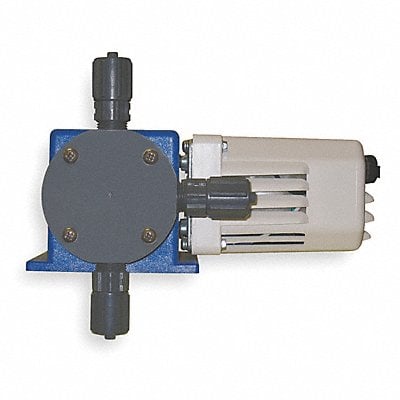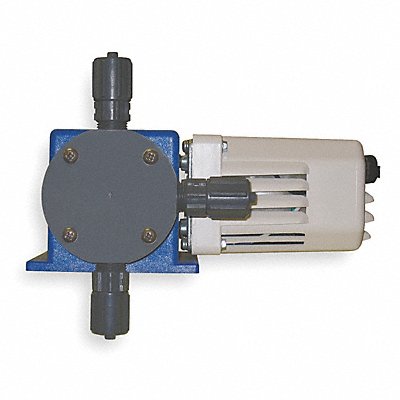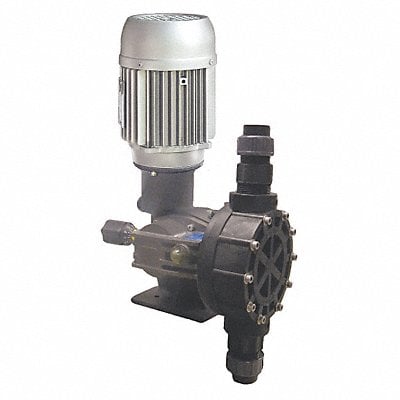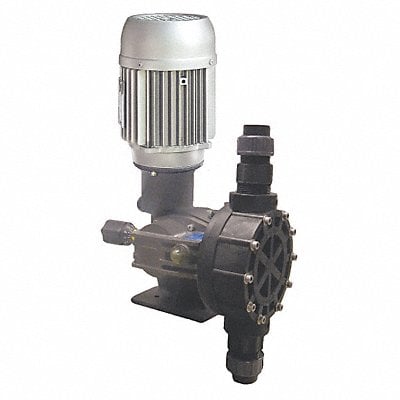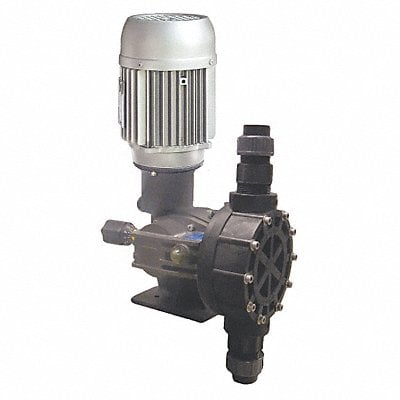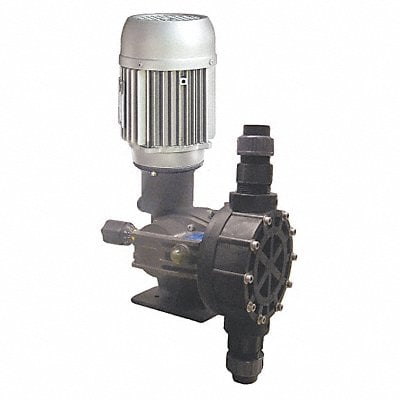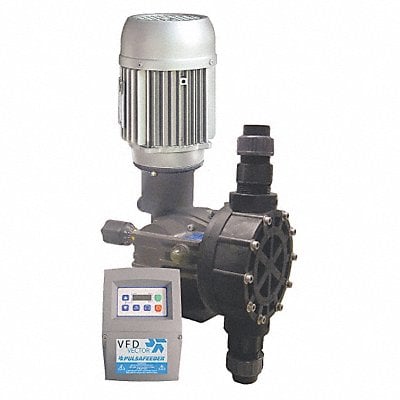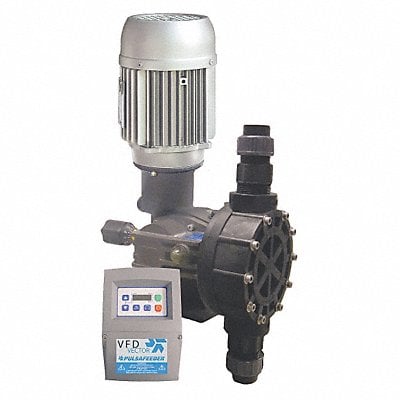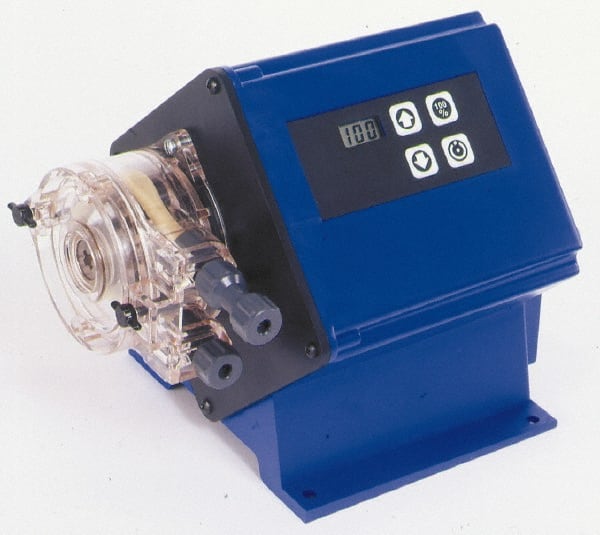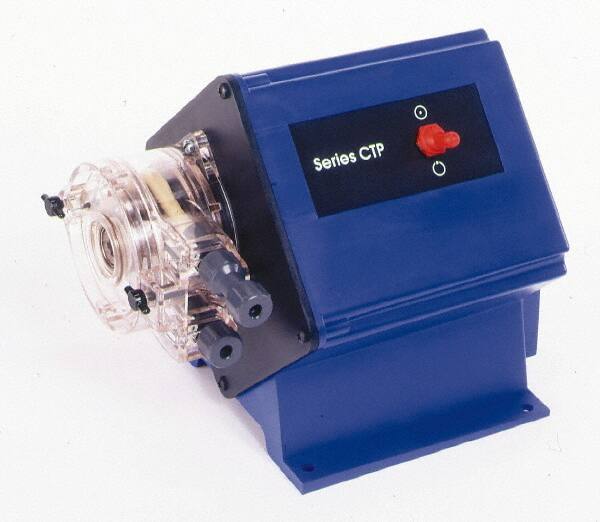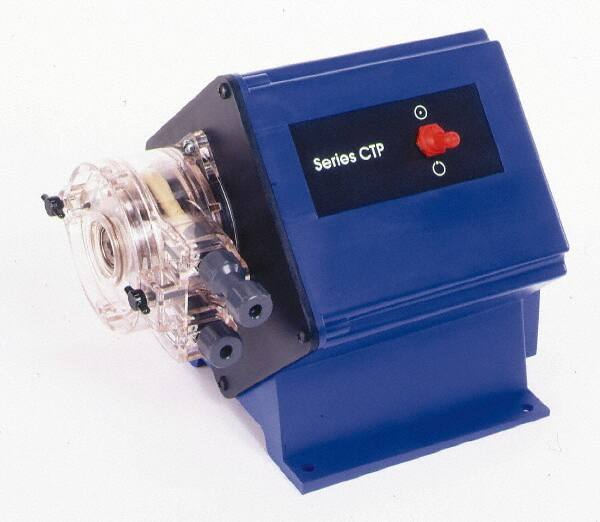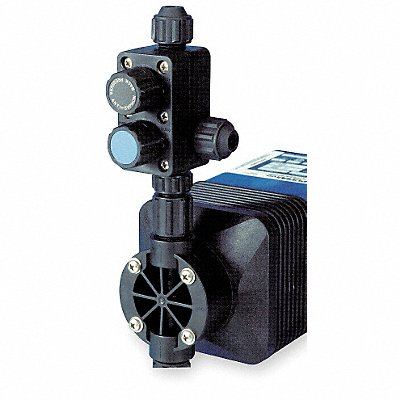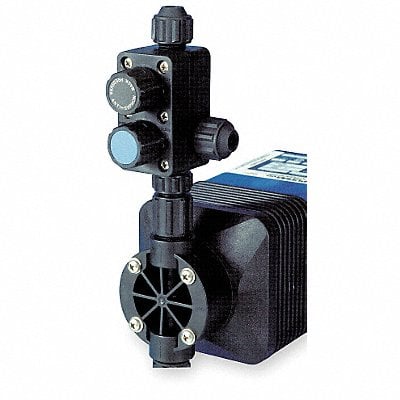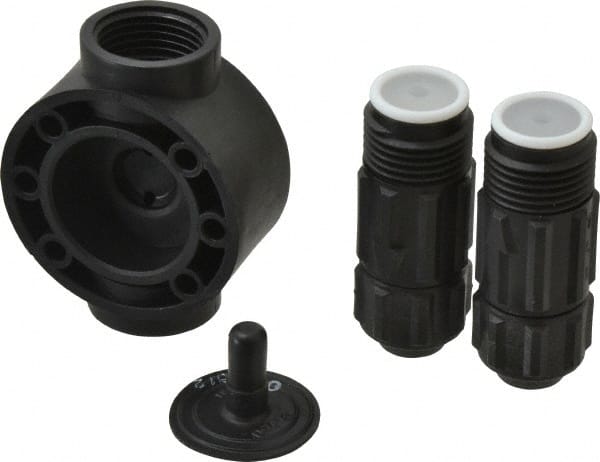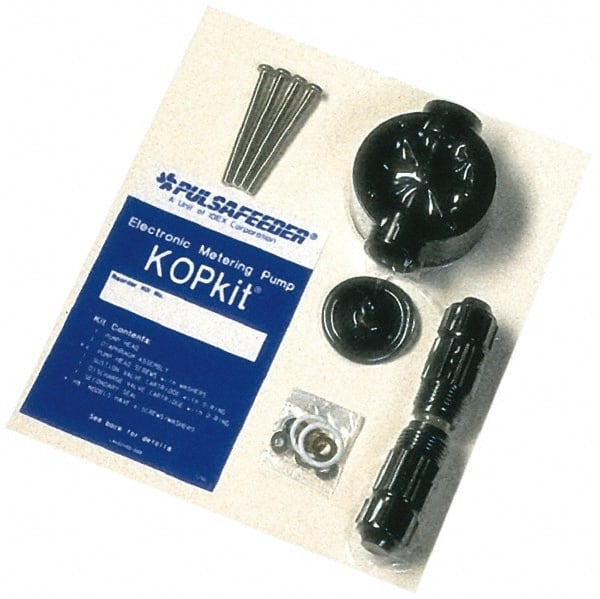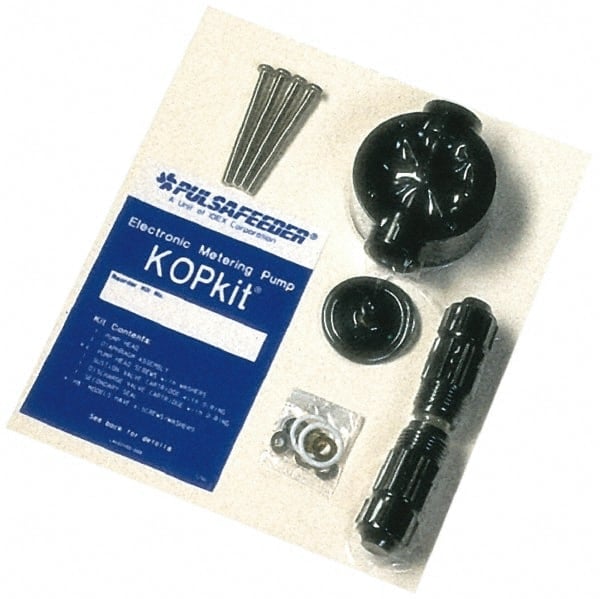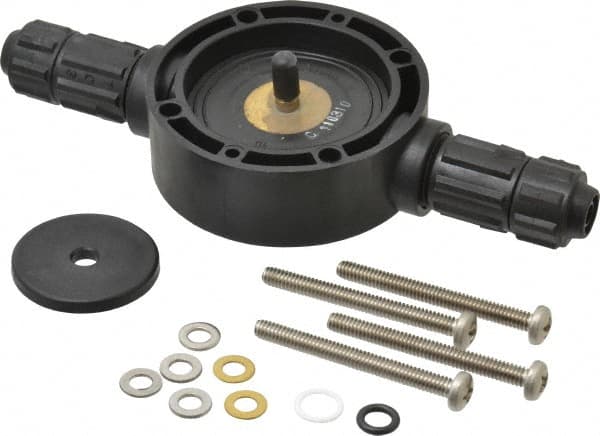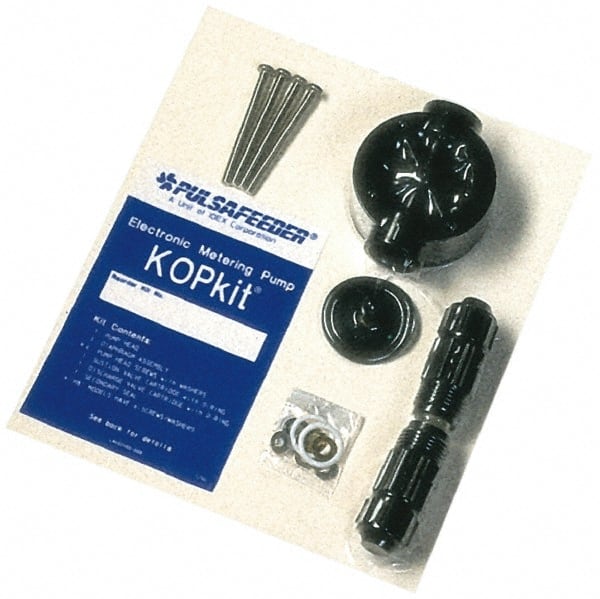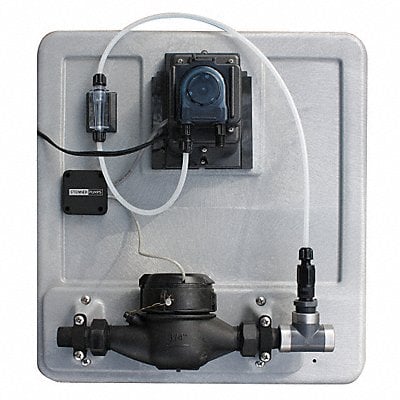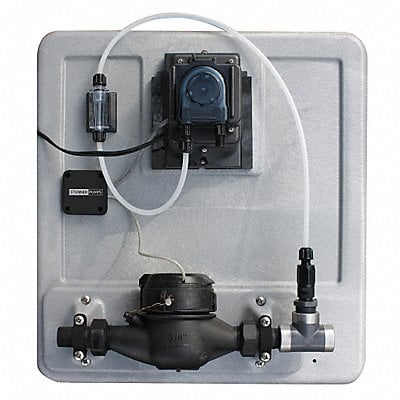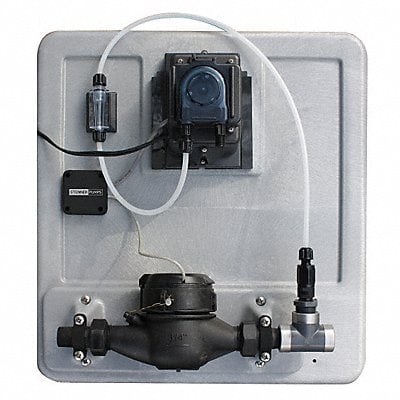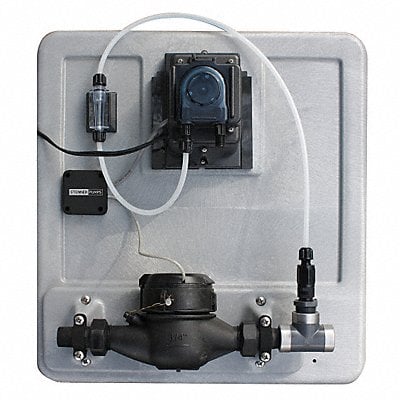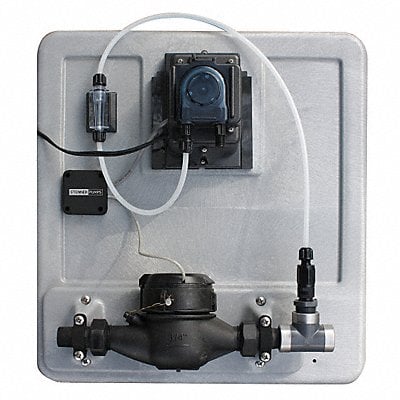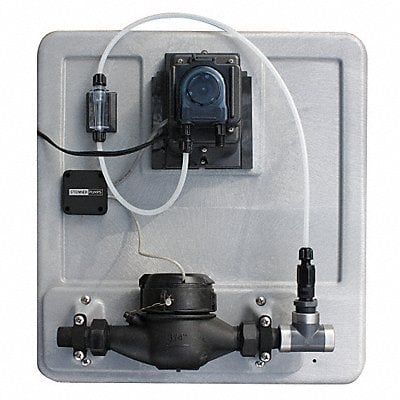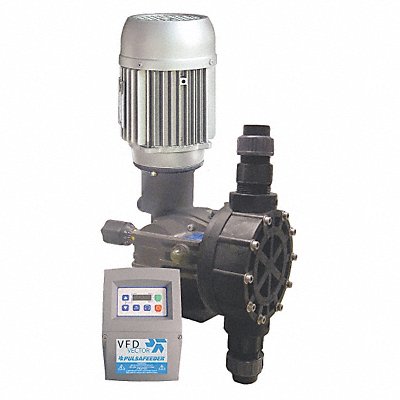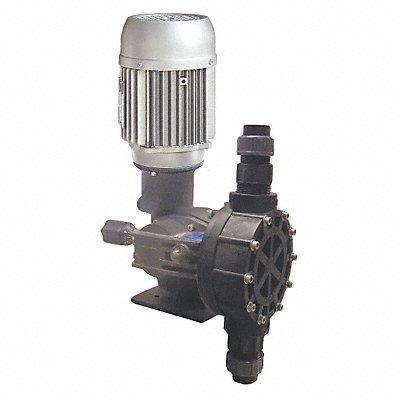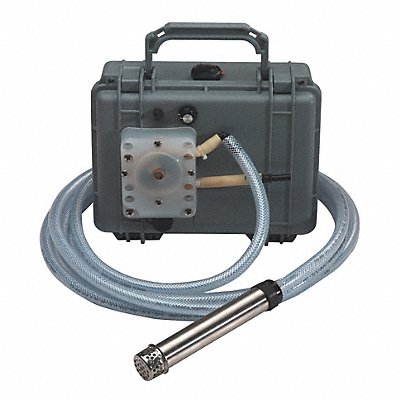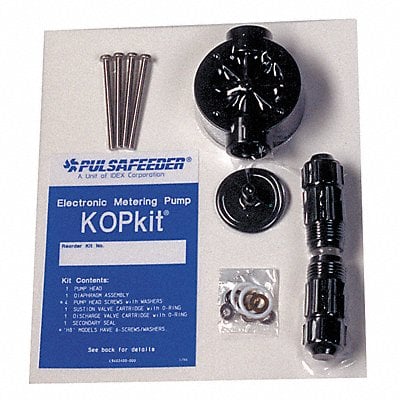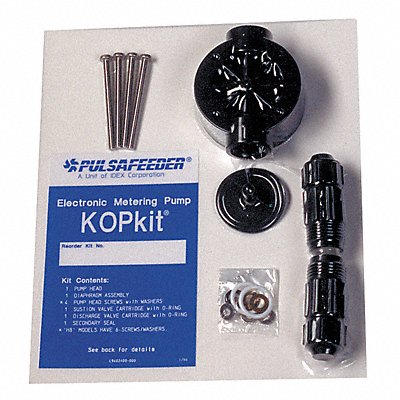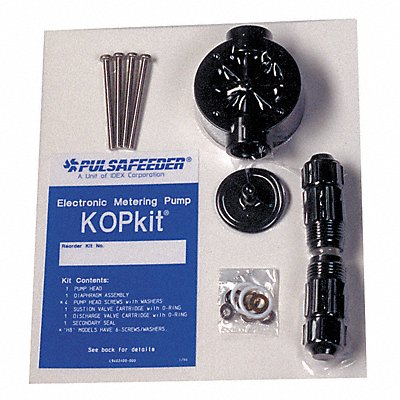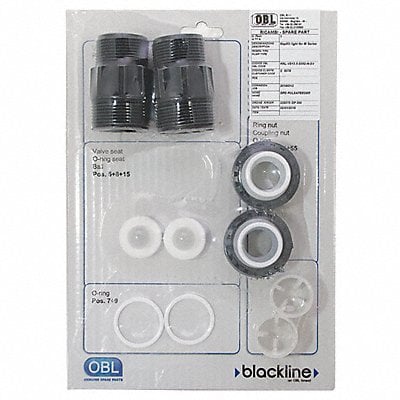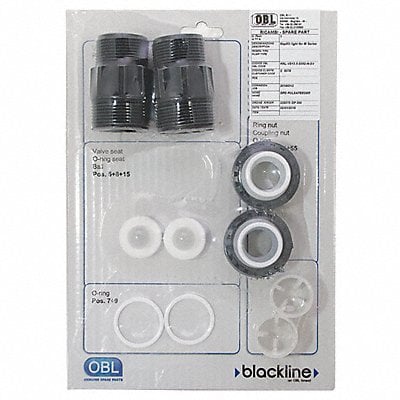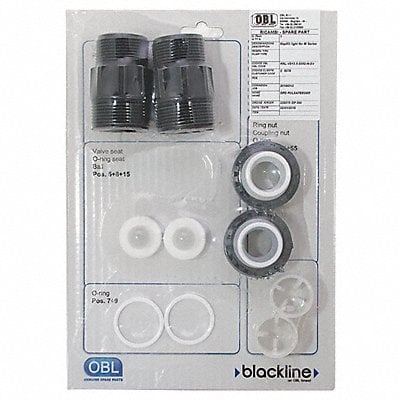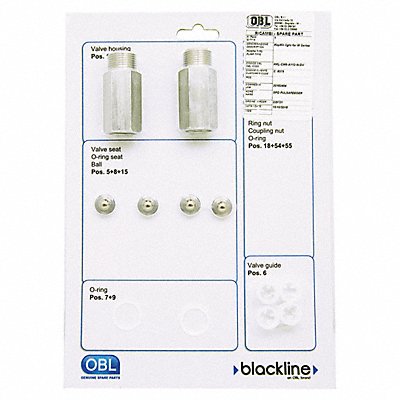The Ultimate Guide to Metering Pumps and Accessories: A Comprehensive Overview
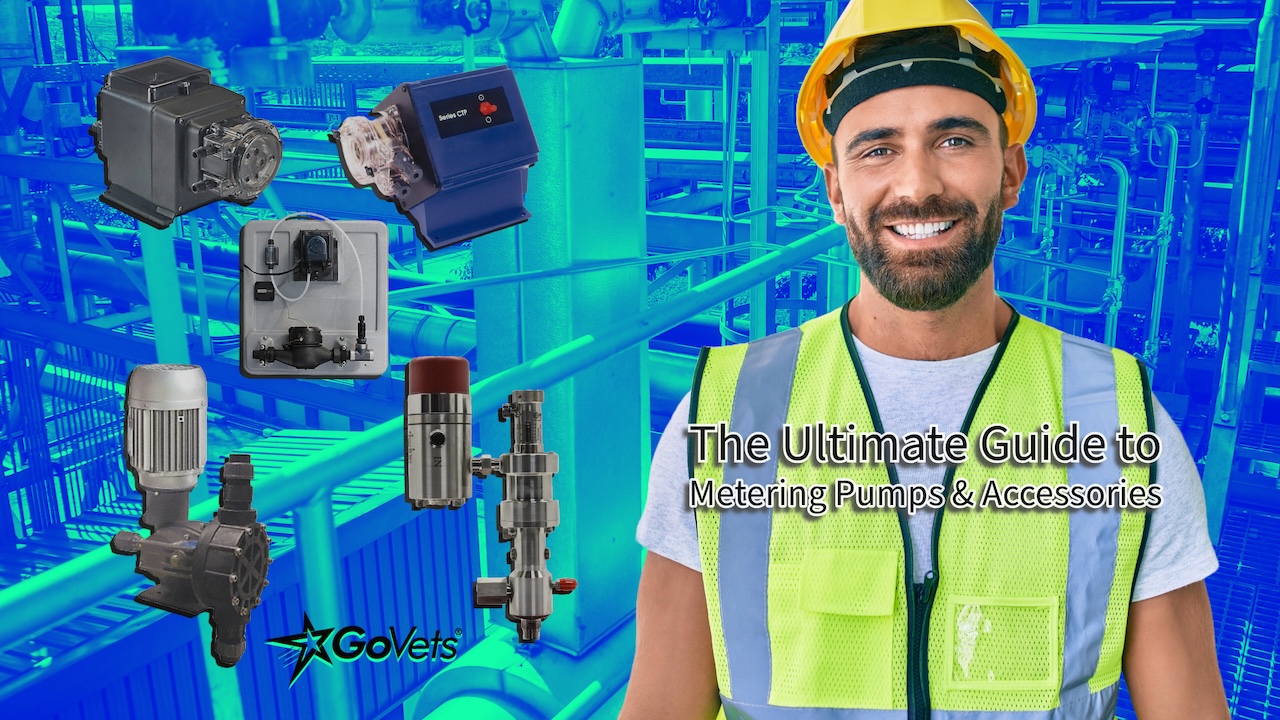
Overview
In industrial and commercial settings, precision is paramount, especially when it comes to chemical dosing and fluid transfer. Metering pumps and accessories play a crucial role in ensuring accurate dispensing of fluids in various applications. This comprehensive guide delves into different types of metering pumps, their typical applications, reasons to use them, FAQs, and recommended add-on products. Lets Dive In...
Part I - What is a Metering Pump?
Metering pumps are precision instruments designed for the accurate and consistent dosing of fluids in various industrial and commercial applications. Unlike traditional pumps, which are primarily focused on transferring fluids from one location to another, metering pumps are specifically engineered to deliver precise volumes of chemicals or other liquids at predetermined flow rates. This level of precision is critical in processes where even slight variations in chemical concentration or flow rate can have significant consequences.
Components:
Metering pumps typically consist of several key components:
- Pump Head: The pump head contains the mechanism responsible for moving the fluid, often comprising a piston, diaphragm, or rotating mechanism.
- Drive Mechanism: The drive mechanism provides the power to move the pump head and control the flow rate of the fluid.
- Fluid Handling Components: These include inlet and outlet valves, tubing, and fittings that guide the flow of the fluid through the pump.
- Control System: Many modern metering pumps feature sophisticated control systems that allow for precise adjustment of flow rates, dosing schedules, and other parameters.
Working Principle: Metering pumps operate on the principle of positive displacement, where a fixed volume of fluid is displaced and delivered with each stroke or rotation of the pump mechanism. This ensures consistent dosing regardless of variations in pressure or viscosity. The pump head alternately fills and empties, drawing fluid into the pump chamber during the suction stroke and expelling it through the outlet during the discharge stroke. By controlling the speed of the pump mechanism and adjusting the stroke length, operators can precisely regulate the flow rate and dosing volume.
Applications: Metering pumps find applications in a wide range of industries, including:
- Water Treatment: Adding chemicals such as chlorine, coagulants, and pH adjusters in water treatment processes.
- Chemical Processing: Metering precise amounts of raw materials, catalysts, or additives in chemical manufacturing.
- Food and Beverage: Dosing flavorings, preservatives, and sanitizers in food and beverage processing.
- Pharmaceuticals: Delivering precise doses of active ingredients in pharmaceutical manufacturing.
- Agriculture: Fertilizing crops, treating irrigation water, and applying pesticides in agricultural operations.
Conclusion: Metering pumps are indispensable tools for achieving accurate and reliable dosing in a wide range of industrial and commercial processes. With their precision engineering, versatile capabilities, and diverse applications, metering pumps play a vital role in ensuring process efficiency, product quality, and regulatory compliance across various industries.
Part II - Product Recommendations:
1. Metering Pumps
Metering pumps are precision instruments designed for accurate dosing of liquids in various industrial and commercial applications. They feature precise control mechanisms to regulate flow rates, making them ideal for tasks requiring consistent and reliable fluid transfer.
Typical Applications:
- Water Treatment: Used for chemical dosing in water treatment plants to maintain water quality.
- Chemical Processing: Essential for adding precise amounts of chemicals in manufacturing processes.
- Food and Beverage Industry: Employed for flavoring, coloring, and pH adjustment in food production.
- Pharmaceutical Manufacturing: Ensures accurate dispensing of active ingredients in drug formulation.
- Agriculture: Used in irrigation systems for fertilizer and pesticide application.
Top 5 Reasons to Use Metering Pumps:
- Precision Dosing: Ensures accurate and consistent dispensing of chemicals or fluids.
- Versatility: Suitable for a wide range of liquids, from corrosive chemicals to viscous solutions.
- Automation Compatibility: Integrates seamlessly with automated systems for enhanced efficiency.
- Longevity: Built with durable materials for reliable performance even in demanding environments.
- Cost-Effectiveness: Reduces waste by minimizing over-dosing, leading to cost savings in the long run.
Top 10 FAQs and Answers:
- How to size a chemical metering pump?
- Chemical metering pumps are sized based on the required flow rate and pressure, as well as the viscosity and chemical compatibility of the fluid being pumped. Consult manufacturer guidelines or seek assistance from technical experts for proper sizing.
- How does a metering pump work?
- Metering pumps operate by displacing a precise volume of liquid with each stroke, ensuring accurate dosing. They typically employ mechanisms such as diaphragms, pistons, or peristaltic action to achieve this.
- What is a metering pump stroke adjustment?
- Stroke adjustment refers to the ability to control the stroke length of the pump, thereby adjusting the flow rate. This feature allows for fine-tuning of dosing requirements.
- What are the advantages of peristaltic metering pumps?
- Peristaltic metering pumps offer gentle pumping action, making them suitable for shear-sensitive fluids. They also have self-priming capabilities and are easy to maintain.
- Are metering pumps suitable for high-pressure applications?
- Yes, certain metering pumps are designed to handle high-pressure tasks, providing precise dosing even under elevated pressure conditions.
- Can metering pumps handle abrasive fluids?
- Some metering pumps are equipped with abrasion-resistant components to withstand the challenges posed by abrasive fluids.
- Are metering pumps compatible with corrosive chemicals?
- Metering pumps are available in a variety of materials, including stainless steel and corrosion-resistant plastics, to ensure compatibility with corrosive chemicals.
- Do metering pumps require regular maintenance?
- While metering pumps are generally low-maintenance, regular inspection and servicing are recommended to ensure optimal performance and longevity.
- Can metering pumps be used for continuous dosing?
- Yes, metering pumps can be configured for continuous dosing applications, providing precise and consistent flow rates over extended periods.
- Are metering pumps suitable for remote operation?
- Many metering pumps offer remote control capabilities, allowing for convenient operation and monitoring from a distance.
Top 5 Product Add-Ons:
- Pressure Gauges: Essential for monitoring system pressure and ensuring optimal pump performance.
- Calibration Kits: Facilitate accurate calibration of metering pumps for precise dosing.
- Check Valves: Prevent backflow and ensure one-way fluid transfer, enhancing system efficiency.
- Tubing and Fittings: High-quality tubing and fittings are essential for leak-free connections and optimal fluid transfer.
- Flow Meters: Enable real-time monitoring of flow rates, facilitating precise dosing control.
Product Recommendation:
-
Chem-TechSpecial Price $632.79This product is sold in increments of 1
-
Chem-TechSpecial Price $609.29This product is sold in increments of 1
-
Blackline By PulsafeederSpecial Price $2799.79This product is sold in increments of 1
-
Blackline By PulsafeederSpecial Price $2773.99This product is sold in increments of 1
-
Blackline By PulsafeederSpecial Price $3337.29This product is sold in increments of 1
-
Blackline By PulsafeederSpecial Price $5099.79This product is sold in increments of 1
-
Blackline By PulsafeederSpecial Price $4222.29This product is sold in increments of 1
-
Blackline By PulsafeederSpecial Price $4794.99This product is sold in increments of 1
This comprehensive guide provides valuable insights into metering pumps and accessories, empowering buyers to make informed decisions for their fluid handling needs. Whether it's precise chemical dosing or reliable fluid transfer, metering pumps offer unparalleled performance and versatility.
2. Peristaltic Metering Pumps
Peristaltic metering pumps utilize a unique pumping mechanism that involves squeezing flexible tubing to displace fluids. This gentle pumping action makes them ideal for handling shear-sensitive and delicate fluids with precision.
Typical Applications:
- Medical and Laboratory Settings: Used for precise dosing of reagents and samples in analytical instruments and medical devices.
- Pharmaceutical Manufacturing: Employed for accurate dispensing of pharmaceutical ingredients in drug production.
- Food and Beverage Industry: Ideal for flavoring, coloring, and ingredient dosing in food processing.
- Environmental Monitoring: Utilized for chemical dosing in environmental monitoring and remediation projects.
- Water Treatment: Essential for adding chemicals in water treatment processes without contamination.
Top 5 Reasons to Use Peristaltic Metering Pumps:
- Gentle Fluid Handling: Peristaltic pumps offer non-contact pumping, making them suitable for shear-sensitive and delicate fluids.
- Contamination Prevention: The closed-loop tubing design minimizes the risk of cross-contamination and fluid exposure.
- Easy Maintenance: Simple tubing replacement and minimal moving parts contribute to easy maintenance and reduced downtime.
- Self-Priming Capability: Peristaltic pumps are self-priming, eliminating the need for manual priming and reducing setup time.
- Versatility: Compatible with a wide range of tubing materials, allowing for handling of various fluids and chemicals.
Top 10 FAQs and Answers:
- How does a peristaltic metering pump work?
- Peristaltic pumps operate by squeezing flexible tubing between rollers or shoes, creating a series of occlusions that propel the fluid forward without contacting the pump components.
- What are the advantages of peristaltic pumps in medical applications?
- Peristaltic pumps offer precise and contamination-free fluid transfer, making them ideal for medical applications where sterile conditions are crucial.
- Can peristaltic pumps handle abrasive fluids?
- While peristaltic pumps are generally not recommended for abrasive fluids due to potential tubing wear, certain tubing materials can withstand moderate abrasion.
- Are peristaltic pumps suitable for continuous operation?
- Yes, peristaltic pumps can operate continuously, providing consistent and reliable fluid transfer over extended periods.
- Do peristaltic pumps require calibration?
- Calibration may be necessary to ensure accurate dosing, especially when using different tubing sizes or materials. Consult manufacturer guidelines for proper calibration procedures.
- Are peristaltic pumps compatible with corrosive chemicals?
- Peristaltic pumps are available with tubing materials designed to withstand corrosive chemicals, ensuring compatibility and longevity.
- Can peristaltic pumps handle high-viscosity fluids?
- Peristaltic pumps are capable of handling fluids with varying viscosities, although higher viscosity fluids may require specialized tubing and pump configurations.
- How often should peristaltic pump tubing be replaced?
- Tubing replacement frequency depends on factors such as fluid compatibility, operating conditions, and maintenance practices. Regular inspection and replacement as needed are recommended.
- Are peristaltic pumps suitable for remote operation?
- Many peristaltic pumps offer remote control capabilities, allowing for convenient operation and monitoring from a distance.
- Can peristaltic pumps be used for metering precise volumes?
- Yes, peristaltic pumps are known for their precise dosing capabilities, making them suitable for applications requiring accurate volume dispensing.
Top 5 Product Add-Ons:
- Tubing Selection Guide: Helps users choose the appropriate tubing material and size for specific applications.
- Tubing Cutter: Facilitates quick and precise tubing cutting for optimal pump performance.
- Tube Fittings and Connectors: Ensure secure and leak-free connections between tubing and pump components.
- Flow Sensors: Enable real-time monitoring of flow rates for enhanced process control and accuracy.
- Pump Mounting Bracket: Provides secure and stable mounting options for peristaltic pumps in various settings.
Product Recommendation:
Peristaltic metering pumps offer precise and contamination-free fluid transfer solutions for a wide range of applications, from medical and laboratory settings to industrial processes. With their gentle pumping action and versatile capabilities, peristaltic pumps are indispensable tools for achieving accurate dosing and fluid handling.
3. Metering Pump Accessories
Metering pump accessories complement the functionality of metering pumps, enhancing their performance, efficiency, and versatility. From calibration kits to tubing fittings, these accessories play a crucial role in optimizing fluid handling systems.
Typical Applications:
- Calibration and Maintenance: Accessories such as calibration kits and spare parts are essential for ensuring accurate dosing and prolonging the lifespan of metering pumps.
- Fluid Handling Optimization: Fittings, connectors, and tubing accessories facilitate leak-free connections and proper fluid transfer in metering pump systems.
- Monitoring and Control: Accessories like flow meters and pressure gauges enable real-time monitoring of pump performance and system parameters.
- Safety and Compliance: Safety features such as pressure relief valves and spill containment systems help maintain a safe operating environment and comply with regulations.
- Customization and Adaptation: Mounting brackets, adapters, and customization kits allow users to adapt metering pumps to specific applications and installation requirements.
Top 5 Reasons to Use Metering Pump Accessories:
- Enhanced Performance: Accessories optimize pump functionality, improving accuracy, reliability, and efficiency.
- Maintenance Support: Spare parts and maintenance kits ensure uninterrupted operation and extend the lifespan of metering pumps.
- Versatility and Adaptability: Accessories enable customization and adaptation of metering pump systems to meet diverse application needs.
- Safety and Compliance: Safety accessories promote a safe working environment and help users comply with industry regulations and standards.
- Convenience and Efficiency: Monitoring and control accessories simplify operation, troubleshooting, and maintenance tasks, enhancing overall system efficiency.
Top 10 FAQs and Answers:
- What is included in a metering pump calibration kit?
- Calibration kits typically include calibration solution, syringes, tubing, fittings, and instructions for proper calibration procedures.
- How often should metering pump accessories be replaced?
- Replacement frequency depends on factors such as usage, operating conditions, and manufacturer recommendations. Regular inspection and maintenance are key to identifying and addressing accessory wear or damage.
- Are metering pump accessories compatible with all pump brands?
- While some accessories may be compatible with multiple pump brands, it's essential to verify compatibility and suitability for specific pump models and applications.
- Can I use third-party accessories with my metering pump?
- Using third-party accessories may void warranties or compromise pump performance and safety. It's advisable to use manufacturer-recommended accessories or consult with technical experts for guidance.
- Are there accessories available for remote monitoring and control of metering pumps?
- Yes, certain accessories, such as remote monitoring systems and digital controllers, enable remote operation, monitoring, and control of metering pumps.
- What safety accessories are recommended for metering pump systems handling hazardous chemicals?
- Safety accessories such as pressure relief valves, leak detection sensors, and spill containment systems help mitigate risks associated with handling hazardous chemicals.
- Do metering pump accessories require calibration?
- Calibration may be necessary for certain accessories, such as flow meters or pressure gauges, to ensure accurate readings and proper operation.
- Can accessories be retrofitted to existing metering pump systems?
- Yes, many accessories are designed for retrofitting to existing pump systems, providing flexibility and adaptability for system upgrades or modifications.
- What are the benefits of using pressure gauges with metering pumps?
- Pressure gauges provide real-time monitoring of system pressure, helping users optimize pump performance, detect issues, and prevent over-pressurization.
- Are there accessories available for integrating metering pumps into automated systems?
- Yes, accessories such as digital controllers, programmable logic controllers (PLCs), and communication interfaces enable seamless integration of metering pumps into automated control systems.
Top 5 Product Add-Ons:
- Calibration Solutions: Ensure accurate calibration of metering pumps for precise dosing.
- Spare Parts Kits: Essential for timely replacement of worn or damaged components to prevent downtime.
- Tubing and Fittings Assortment: Provide a selection of tubing sizes and fittings for versatile fluid handling solutions.
- Remote Monitoring Systems: Enable remote monitoring and control of pump performance for enhanced efficiency and convenience.
- Safety and Compliance Kits: Include safety accessories such as pressure relief valves, spill containment systems, and safety labels for regulatory compliance and workplace safety.
Product Recommendation:
-
PulsafeederSpecial Price $120.29This product is sold in increments of 1
-
PulsafeederSpecial Price $121.79This product is sold in increments of 1
-
PulsafeederSpecial Price $152.79 Regular Price $209.44This product is sold in increments of 1
-
PulsafeederSpecial Price $131.29 Regular Price $178.97This product is sold in increments of 1
-
PulsafeederSpecial Price $178.79 Regular Price $240.4This product is sold in increments of 1
-
PulsafeederSpecial Price $186.99 Regular Price $257.11This product is sold in increments of 1
-
PulsafeederSpecial Price $218.99 Regular Price $300.99This product is sold in increments of 1
-
WilliamsSpecial Price $445.49This product is sold in increments of 1
Metering pump accessories are essential components for optimizing pump performance, ensuring system reliability, and maintaining safety and compliance standards. With a wide range of accessories available, users can customize and enhance their metering pump systems to meet specific application requirements and operational needs.
4. Chemical Metering Pump Systems
Chemical metering pump systems are complete solutions that integrate metering pumps with additional components such as controllers, tanks, and piping to provide turnkey chemical dosing solutions. These systems offer a comprehensive approach to precise chemical dosing in various industrial and commercial applications.
Typical Applications:
- Water Treatment Plants: Used for adding chemicals such as chlorine, coagulants, and pH adjusters in water treatment processes.
- Wastewater Treatment: Employed for dosing chemicals for odor control, flocculation, and disinfection in wastewater treatment facilities.
- Industrial Processes: Integrated into manufacturing processes for precise chemical dosing in production lines, cooling towers, and boiler systems.
- Municipal Applications: Utilized in municipal facilities for dosing chemicals in potable water distribution, sewage treatment, and public swimming pools.
- Agriculture and Aquaculture: Essential for fertilization, pH adjustment, and disease control in agricultural irrigation and aquaculture systems.
Top 5 Reasons to Use Chemical Metering Pump Systems:
- Integrated Solutions: Chemical metering pump systems offer complete solutions with pre-configured components for seamless integration and operation.
- Precision Dosing: Ensure accurate and consistent chemical dosing for critical applications, reducing waste and improving process efficiency.
- Simplified Installation: Ready-to-install systems minimize setup time and eliminate the need for complex engineering and assembly.
- Automation Capabilities: Integrated controllers enable automated dosing control, monitoring, and alarms for enhanced process management.
- Scalability and Flexibility: Systems are scalable to accommodate changing dosing requirements and adaptable to various applications and environments.
Top 10 FAQs and Answers:
- What components are included in a chemical metering pump system?
- Chemical metering pump systems typically include a metering pump, controller, chemical tank, piping, valves, and accessories for a complete dosing solution.
- How do I select the right chemical metering pump system for my application?
- Consider factors such as required flow rate, pressure, chemical compatibility, system integration, and automation requirements when selecting a chemical metering pump system.
- Are chemical metering pump systems suitable for outdoor installations?
- Yes, chemical metering pump systems can be configured for outdoor installations with appropriate weatherproofing and environmental protection measures.
- Can chemical metering pump systems handle multiple chemicals simultaneously?
- Yes, some systems are designed to accommodate multiple chemical dosing points and can handle simultaneous dosing of different chemicals.
- What are the benefits of using integrated controllers in chemical metering pump systems?
- Integrated controllers offer advanced dosing control features such as adjustable dosing schedules, flow monitoring, and remote access for enhanced process management.
- Are chemical metering pump systems compatible with remote monitoring and control?
- Yes, many systems offer remote monitoring and control capabilities via built-in communication interfaces or optional add-ons.
- Do chemical metering pump systems require regular maintenance?
- Yes, regular maintenance, including inspection, calibration, and component replacement, is essential to ensure optimal performance and longevity of chemical metering pump systems.
- Can chemical metering pump systems be customized for specific applications?
- Yes, manufacturers often offer customization options to tailor chemical metering pump systems to unique application requirements, such as special materials of construction, additional features, or specific control strategies.
- What safety features are included in chemical metering pump systems?
- Safety features may include leak detection sensors, pressure relief valves, overpressure protection, and alarms to ensure safe operation and compliance with regulatory requirements.
- Are chemical metering pump systems compatible with existing infrastructure and automation systems?
- Yes, chemical metering pump systems can be integrated into existing infrastructure and automation systems using standard communication protocols and interface options.
Top 5 Product Add-Ons:
- Spare Parts Kits: Ensure availability of critical components for timely maintenance and repairs.
- Remote Monitoring and Control Modules: Enable remote access and control of system parameters for enhanced efficiency and convenience.
- Chemical Tank Level Sensors: Provide real-time monitoring of chemical levels for proactive refill scheduling and inventory management.
- Flow Totalizers: Track cumulative chemical usage for process optimization and inventory management.
- Dosing Manifolds: Facilitate distribution of dosed chemicals to multiple injection points for efficient chemical distribution.
Product Recommendation:
-
StennerSpecial Price $1463.49This product is sold in increments of 1
-
StennerSpecial Price $1463.49This product is sold in increments of 1
-
StennerSpecial Price $1463.49This product is sold in increments of 1
-
StennerSpecial Price $1463.49This product is sold in increments of 1
-
StennerSpecial Price $1463.49This product is sold in increments of 1
-
StennerSpecial Price $1463.49This product is sold in increments of 1
Chemical metering pump systems offer turnkey solutions for precise and reliable chemical dosing in a variety of industrial and commercial applications. With integrated components and advanced control capabilities, these systems provide efficient and convenient solutions for accurate chemical dosing requirements.
5. Diaphragm Chemical Metering Pumps
Diaphragm chemical metering pumps utilize a reciprocating diaphragm to displace fluids, offering precise and reliable dosing capabilities. These pumps are commonly used in applications requiring accurate chemical dosing and are known for their durability and versatility.
Typical Applications:
- Municipal Water Treatment: Used for injecting chlorine, fluoride, and other chemicals in municipal water treatment facilities.
- Cooling Tower Treatment: Essential for dosing biocides, corrosion inhibitors, and scale inhibitors in cooling tower water treatment systems.
- Oil and Gas Production: Employed for chemical injection in oil and gas wells for corrosion inhibition, scale prevention, and production enhancement.
- Food and Beverage Processing: Utilized for flavoring, sanitization, and pH adjustment in food and beverage production processes.
- Chemical Manufacturing: Integrated into chemical production lines for precise dosing of raw materials and additives.
Top 5 Reasons to Use Diaphragm Chemical Metering Pumps:
- Accurate Dosing: Diaphragm pumps offer precise and consistent chemical dosing, ensuring reliable process control and product quality.
- Chemical Compatibility: Compatible with a wide range of chemicals, including corrosive, abrasive, and viscous fluids, making them suitable for diverse applications.
- Leak-Free Operation: Double diaphragm designs and sealless construction minimize the risk of leaks and ensure safe and reliable operation.
- Durability and Longevity: Constructed with robust materials and designed for heavy-duty operation, diaphragm pumps are built to withstand harsh environments and extended use.
- Versatility: Diaphragm pumps are adaptable to various installation configurations and can be customized with accessories for specific application requirements.
Top 10 FAQs and Answers:
- How does a diaphragm metering pump work?
- Diaphragm pumps utilize a reciprocating diaphragm to displace fluids, creating suction and discharge strokes to achieve precise dosing.
- What are the advantages of using diaphragm pumps over other types of metering pumps?
- Diaphragm pumps offer leak-free operation, excellent chemical compatibility, and reliable performance, making them ideal for demanding applications.
- Can diaphragm pumps handle high-viscosity fluids?
- Yes, diaphragm pumps are capable of handling fluids with high viscosity, although flow rates may be lower compared to lower viscosity fluids.
- Do diaphragm pumps require lubrication?
- Most diaphragm pumps are designed for dry operation and do not require lubrication, simplifying maintenance and reducing the risk of contamination.
- Are diaphragm pumps self-priming?
- Yes, diaphragm pumps are self-priming and can automatically remove air from the suction line, making them easy to install and operate.
- Can diaphragm pumps handle abrasive fluids?
- Diaphragm pumps can handle certain abrasive fluids, although abrasion-resistant materials may be required for prolonged operation with abrasive media.
- What preventive maintenance is required for diaphragm pumps?
- Regular inspection, diaphragm replacement, and seal inspection are recommended to ensure optimal performance and prevent downtime.
- Are diaphragm pumps suitable for continuous dosing applications?
- Yes, diaphragm pumps can be operated continuously for extended periods, providing reliable and consistent dosing in various applications.
- Do diaphragm pumps require calibration?
- Calibration may be necessary to ensure accurate dosing, especially when using different diaphragm materials or operating conditions.
- Can diaphragm pumps be used for remote operation?
- Yes, diaphragm pumps can be equipped with remote control capabilities, allowing for convenient operation and monitoring from a distance.
Top 5 Product Add-Ons:
- Diaphragm Replacement Kits: Ensure availability of spare diaphragms for timely maintenance and repairs.
- Stroke Adjustment Kits: Enable fine-tuning of stroke length for precise flow rate control and dosing adjustments.
- Pressure Relief Valves: Provide overpressure protection and ensure safe operation of diaphragm pumps.
- Dosing Tanks: Facilitate bulk storage of chemicals for continuous dosing applications, with optional level sensors for monitoring.
- Pulsation Dampeners: Minimize pulsation and pressure fluctuations for smoother fluid flow and improved dosing accuracy.
Product Recommendation:
-
Blackline By PulsafeederSpecial Price $2799.79This product is sold in increments of 1
-
Blackline By PulsafeederSpecial Price $2773.99This product is sold in increments of 1
-
Blackline By PulsafeederSpecial Price $3337.29This product is sold in increments of 1
-
Blackline By PulsafeederSpecial Price $5099.79This product is sold in increments of 1
-
Blackline By PulsafeederSpecial Price $5131.99This product is sold in increments of 1
-
Blackline By PulsafeederSpecial Price $3170.99This product is sold in increments of 1
-
Blackline By PulsafeederSpecial Price $3362.79This product is sold in increments of 1
-
Blackline By PulsafeederSpecial Price $5644.79This product is sold in increments of 1
Diaphragm chemical metering pumps are versatile and reliable solutions for precise chemical dosing in a wide range of applications. With their leak-free operation, excellent chemical compatibility, and durable construction, diaphragm pumps are trusted by industries worldwide for accurate and consistent fluid transfer.
6. Peristaltic Chemical Metering Pumps
Peristaltic chemical metering pumps utilize a unique mechanism involving rollers or shoes to compress and decompress flexible tubing, creating a series of occlusions and releases that propel the fluid forward. These pumps offer precise dosing capabilities and are well-suited for applications requiring gentle handling of sensitive fluids.
Typical Applications:
- Medical and Pharmaceutical: Used for precise dosing of medications, reagents, and solutions in medical and pharmaceutical applications.
- Laboratory and Research: Employed for metering precise volumes of chemicals and samples in laboratory and research environments.
- Food and Beverage: Utilized for flavoring, colorants, and additives dosing in food and beverage processing.
- Water Treatment: Integrated into water treatment systems for chemical dosing and pH adjustment.
- Biotechnology: Applied in bioreactor systems and fermentation processes for nutrient and media dosing.
Top 5 Reasons to Use Peristaltic Chemical Metering Pumps:
- Gentle Fluid Handling: Peristaltic pumps offer gentle fluid handling, making them suitable for shear-sensitive or fragile fluids.
- Precise Dosing: With minimal pulsation and accurate flow control, peristaltic pumps ensure precise dosing of chemicals and solutions.
- Minimal Contamination Risk: The fluid remains entirely contained within the tubing, reducing the risk of contamination and cross-contamination.
- Easy Maintenance: Peristaltic pumps feature simple designs with few moving parts, resulting in easy maintenance and minimal downtime.
- Versatility: Compatible with a wide range of fluids and viscosities, peristaltic pumps are versatile solutions for various applications.
Top 10 FAQs and Answers:
- How do peristaltic pumps work?
- Peristaltic pumps use rotating rollers or shoes to compress and decompress flexible tubing, creating a series of occlusions that propel the fluid forward.
- What types of tubing are compatible with peristaltic pumps?
- Peristaltic pumps are compatible with various tubing materials, including silicone, Tygon®, and Viton®, selected based on fluid compatibility and application requirements.
- Can peristaltic pumps handle abrasive fluids?
- Peristaltic pumps can handle some abrasive fluids, although tubing wear may occur over time, necessitating periodic replacement.
- Are peristaltic pumps self-priming?
- Yes, peristaltic pumps are self-priming and can lift fluids from a lower level to the pump inlet without the need for manual priming.
- What maintenance is required for peristaltic pumps?
- Routine maintenance includes inspecting and replacing tubing as needed, checking for leaks, and cleaning pump components.
- Are peristaltic pumps suitable for continuous dosing applications?
- Yes, peristaltic pumps can be operated continuously for extended periods, providing accurate and consistent dosing.
- Can peristaltic pumps be used for viscous fluids?
- Peristaltic pumps can handle moderately viscous fluids, although flow rates may be reduced compared to lower viscosity fluids.
- Do peristaltic pumps require calibration?
- Calibration may be necessary to ensure accurate dosing, particularly when using different tubing materials or operating conditions.
- Can peristaltic pumps be used for remote operation?
- Yes, peristaltic pumps can be equipped with remote control capabilities for convenient operation and monitoring.
- What safety features do peristaltic pumps offer?
- Peristaltic pumps offer inherent safety features such as fluid containment within the tubing, reducing the risk of spills and exposure.
Top 5 Product Add-Ons:
- Tubing Selection Guide: Assist in choosing the appropriate tubing material for specific fluid types and applications.
- Tubing Cutter: Facilitate precise cutting of tubing lengths for installation and replacement.
- Tube Fittings and Connectors: Provide secure connections between tubing and pump components for leak-free operation.
- Tubing Support Brackets: Secure tubing in place and prevent kinking or bending during operation.
- Tubing Cleaning Solution: Aid in the removal of residue and buildup from tubing for optimal performance and longevity.
Product Recommendation:
-
StennerSpecial Price $383.99This product is sold in increments of 1
-
StennerSpecial Price $403.49This product is sold in increments of 1
-
StennerSpecial Price $403.49This product is sold in increments of 1
-
StennerSpecial Price $403.49This product is sold in increments of 1
-
Global WaterSpecial Price $1420.99This product is sold in increments of 1
-
StennerSpecial Price $1478.49This product is sold in increments of 1
-
StennerSpecial Price $1478.49This product is sold in increments of 1
-
HeidolphSpecial Price $3027.79This product is sold in increments of 1
Peristaltic chemical metering pumps offer precise and reliable dosing solutions for a wide range of applications, ensuring accurate fluid transfer with minimal contamination risk. With their gentle handling, precise dosing capabilities, and easy maintenance, peristaltic pumps are trusted by industries worldwide for critical fluid handling tasks.
7. Chemical Metering Pump Repair Parts
Chemical metering pump repair parts are essential components for maintaining and servicing metering pumps, ensuring optimal performance and longevity. From diaphragms to valves, these repair parts enable users to address wear and damage, prolonging the lifespan of metering pump systems.
Typical Applications:
- Preventive Maintenance: Regular replacement of wear parts such as diaphragms, valves, and seals helps prevent downtime and ensure reliable pump operation.
- Emergency Repairs: Repair parts kits provide a convenient solution for quickly addressing pump failures and minimizing disruption to processes.
- Component Upgrades: Upgrading pump components with newer designs or materials can improve performance, efficiency, and reliability.
- Field Service: Repair parts are essential for field service technicians to perform on-site repairs and maintenance of metering pump systems.
- Spare Parts Inventory: Maintaining a stock of repair parts ensures availability for routine maintenance and emergency repairs, reducing downtime and costs.
Top 5 Reasons to Use Chemical Metering Pump Repair Parts:
- Minimize Downtime: Repair parts enable quick and efficient maintenance and repairs, minimizing downtime and production losses.
- Extend Pump Lifespan: Regular replacement of wear parts helps prevent premature failure and prolongs the lifespan of metering pumps.
- Ensure Reliable Operation: Using genuine repair parts ensures compatibility and reliability, maintaining optimal pump performance.
- Cost-Effective Maintenance: Repairing and replacing individual components is often more cost-effective than replacing entire pump units.
- Maintain Process Integrity: Properly maintained pumps with quality repair parts help ensure accurate and consistent chemical dosing, preserving process integrity and product quality.
Top 10 FAQs and Answers:
- How do I identify the right repair parts for my metering pump?
- Consult the pump manufacturer's documentation or contact technical support to identify the correct repair parts for your specific pump model.
- What are the most commonly replaced parts in metering pumps?
- Diaphragms, valves, seals, and tubing are among the most commonly replaced parts in metering pumps due to wear and tear.
- Are repair parts interchangeable between different pump brands?
- While some repair parts may be compatible with multiple pump brands, it's essential to verify compatibility and suitability for your specific pump model.
- Do I need special tools to replace metering pump repair parts?
- Basic hand tools are typically sufficient for replacing most metering pump repair parts, although specialized tools may be required for certain components or procedures.
- Are repair parts covered under pump warranties?
- Warranty coverage for repair parts varies by manufacturer and may be subject to certain conditions and limitations. Check the warranty terms for specific details.
- How often should I replace diaphragms in my metering pump?
- Diaphragm replacement frequency depends on factors such as operating conditions, chemical compatibility, and maintenance practices. Refer to manufacturer guidelines for recommended replacement intervals.
- Can I perform repairs and maintenance on my metering pump myself?
- While some basic maintenance tasks can be performed by users, complex repairs and component replacements may require professional service or technical expertise.
- Are repair parts available for older or discontinued pump models?
- Availability of repair parts for older or discontinued pump models may vary, although aftermarket suppliers or refurbished parts may offer alternatives.
- Do repair parts come with installation instructions?
- Many repair parts come with installation instructions or guidelines to ensure proper installation and operation.
- What are the benefits of using OEM repair parts versus aftermarket alternatives?
- OEM (Original Equipment Manufacturer) repair parts are specifically designed and tested for compatibility and reliability with the original pump, offering assurance of quality and performance. Aftermarket parts may offer cost savings but may vary in quality and compatibility.
Top 5 Product Add-Ons:
- Repair Parts Kits: Include essential components for common repairs and maintenance tasks, providing convenience and cost savings.
- Diaphragm Replacement Tools: Specialized tools such as diaphragm stretching tools or installation fixtures facilitate easy and proper diaphragm replacement.
- Spare Parts Storage Containers: Organize and store spare repair parts for easy access and inventory management.
- Maintenance Manuals and Guides: Provide detailed instructions and guidelines for performing routine maintenance and repairs on metering pumps.
- Technical Support and Training: Access to manufacturer technical support and training resources can help users troubleshoot issues and perform maintenance tasks effectively.
Product Recommendation:
-
PulsafeederSpecial Price $333.99This product is sold in increments of 1
-
PulsafeederSpecial Price $378.29This product is sold in increments of 1
-
PulsafeederSpecial Price $293.79This product is sold in increments of 1
-
Blackline By PulsafeederSpecial Price $1706.79This product is sold in increments of 1
-
Blackline By PulsafeederSpecial Price $1793.99This product is sold in increments of 1
-
Blackline By PulsafeederSpecial Price $2079.29This product is sold in increments of 1
-
Blackline By PulsafeederSpecial Price $1624.79This product is sold in increments of 1
-
Blackline By PulsafeederSpecial Price $1132.49This product is sold in increments of 1
Chemical metering pump repair parts are essential for maintaining pump performance, minimizing downtime, and ensuring reliable chemical dosing in various applications. With a range of repair parts available, users can address wear and damage promptly, prolonging the lifespan of metering pump systems and preserving process integrity.
8. Chemical Metering Pump Accessories
Chemical metering pump accessories complement the functionality of metering pumps, enhancing their performance, efficiency, and versatility. From calibration kits to tubing fittings, these accessories play a crucial role in optimizing fluid handling systems.
Typical Applications:
- Calibration and Maintenance: Accessories such as calibration kits and spare parts are essential for ensuring accurate dosing and prolonging the lifespan of metering pumps.
- Fluid Handling Optimization: Fittings, connectors, and tubing accessories facilitate leak-free connections and proper fluid transfer in metering pump systems.
- Monitoring and Control: Accessories like flow meters and pressure gauges enable real-time monitoring of pump performance and system parameters.
- Safety and Compliance: Safety features such as pressure relief valves and spill containment systems help maintain a safe operating environment and comply with regulations.
- Customization and Adaptation: Mounting brackets, adapters, and customization kits allow users to adapt metering pumps to specific applications and installation requirements.
Top 5 Reasons to Use Metering Pump Accessories:
- Enhanced Performance: Accessories optimize pump functionality, improving accuracy, reliability, and efficiency.
- Maintenance Support: Spare parts and maintenance kits ensure uninterrupted operation and extend the lifespan of metering pumps.
- Versatility and Adaptability: Accessories enable customization and adaptation of metering pump systems to meet diverse application needs.
- Safety and Compliance: Safety accessories promote a safe working environment and help users comply with industry regulations and standards.
- Convenience and Efficiency: Monitoring and control accessories simplify operation, troubleshooting, and maintenance tasks, enhancing overall system efficiency.
Top 10 FAQs and Answers:
- What is included in a metering pump calibration kit?
- Calibration kits typically include calibration solution, syringes, tubing, fittings, and instructions for proper calibration procedures.
- How often should metering pump accessories be replaced?
- Replacement frequency depends on factors such as usage, operating conditions, and manufacturer recommendations. Regular inspection and maintenance are key to identifying and addressing accessory wear or damage.
- Are metering pump accessories compatible with all pump brands?
- While some accessories may be compatible with multiple pump brands, it's essential to verify compatibility and suitability for specific pump models and applications.
- Can I use third-party accessories with my metering pump?
- Using third-party accessories may void warranties or compromise pump performance and safety. It's advisable to use manufacturer-recommended accessories or consult with technical experts for guidance.
- Are there accessories available for remote monitoring and control of metering pumps?
- Yes, certain accessories, such as remote monitoring systems and digital controllers, enable remote operation, monitoring, and control of metering pumps.
- What safety accessories are recommended for metering pump systems handling hazardous chemicals?
- Safety accessories such as pressure relief valves, leak detection sensors, and spill containment systems help mitigate risks associated with handling hazardous chemicals.
- Do metering pump accessories require calibration?
- Calibration may be necessary for certain accessories, such as flow meters or pressure gauges, to ensure accurate readings and proper operation.
- Can accessories be retrofitted to existing metering pump systems?
- Yes, many accessories are designed for retrofitting to existing pump systems, providing flexibility and adaptability for system upgrades or modifications.
- What are the benefits of using pressure gauges with metering pumps?
- Pressure gauges provide real-time monitoring of system pressure, helping users optimize pump performance, detect issues, and prevent over-pressurization.
- Are there accessories available for integrating metering pumps into automated systems?
- Yes, accessories such as digital controllers, programmable logic controllers (PLCs), and communication interfaces enable seamless integration of metering pumps into automated control systems.
Top 5 Product Add-Ons:
- Calibration Solutions: Ensure accurate calibration of metering pumps for precise dosing.
- Spare Parts Kits: Essential for timely replacement of worn or damaged components to prevent downtime.
- Tubing and Fittings Assortment: Provide a selection of tubing sizes and fittings for versatile fluid handling solutions.
- Remote Monitoring Systems: Enable remote monitoring and control of pump performance for enhanced efficiency and convenience.
- Safety and Compliance Kits: Include safety accessories such as pressure relief valves, spill containment systems, and safety labels for regulatory compliance and workplace safety.
Product Recommendation:
-
PulsafeederSpecial Price $120.29This product is sold in increments of 1
-
PulsafeederSpecial Price $121.79This product is sold in increments of 1
-
PulsafeederSpecial Price $152.79 Regular Price $209.44This product is sold in increments of 1
-
PulsafeederSpecial Price $131.29 Regular Price $178.97This product is sold in increments of 1
-
PulsafeederSpecial Price $178.79 Regular Price $240.4This product is sold in increments of 1
-
PulsafeederSpecial Price $186.99 Regular Price $257.11This product is sold in increments of 1
-
PulsafeederSpecial Price $218.99 Regular Price $300.99This product is sold in increments of 1
-
WilliamsSpecial Price $445.49This product is sold in increments of 1
Metering pump accessories are essential components for optimizing pump performance, ensuring system reliability, and maintaining safety and compliance standards. With a wide range of accessories available, users can customize and enhance their metering pump systems to meet specific application requirements and operational needs.
Final Pumping Thoughts:
Chemical metering pumps play a crucial role in precise chemical dosing across various industries, ensuring accurate and reliable delivery of chemicals for water treatment, manufacturing processes, and more. Understanding the different types of metering pumps, their applications, and the importance of accessories and repair parts is essential for maximizing pump performance and efficiency. Whether you're a facility manager, engineer, or maintenance technician, investing in quality metering pumps and accessories is key to maintaining process integrity, minimizing downtime, and achieving optimal results.
- Safety in Hazardous Environments: Demystifying Motors and Pumps
- Selecting the Right Sewage Pump: A Comprehensive Guide and Top Recommendations
- Understanding Various Types of Utility Pumps: A Comprehensive Guide
- A Comprehensive Guide to Tire Air Compressors, Pumps, Gauges and more.
- Choosing the Right Pump and Stand: A Comprehensive Guide to Sump Effluent and Sewage Pumps and Accessories
- Veteran Spotlight
- GoVets Solutions
- Buying Guides & Projects
- Shopping Trends
- Prime Contractor Resources
- Business & Entrepreneur Resources
- GoVets Giving
- Online Security and Shopping Safety
- GoVets Top Selling Products
- Veteran Resources
- Product Spotlights
- Technology Updates
- GoVets Medallion Updates
- Government Updates
- GoVets Capabilities
- Press Releases
- Promotion Updates
- Industry Trends


